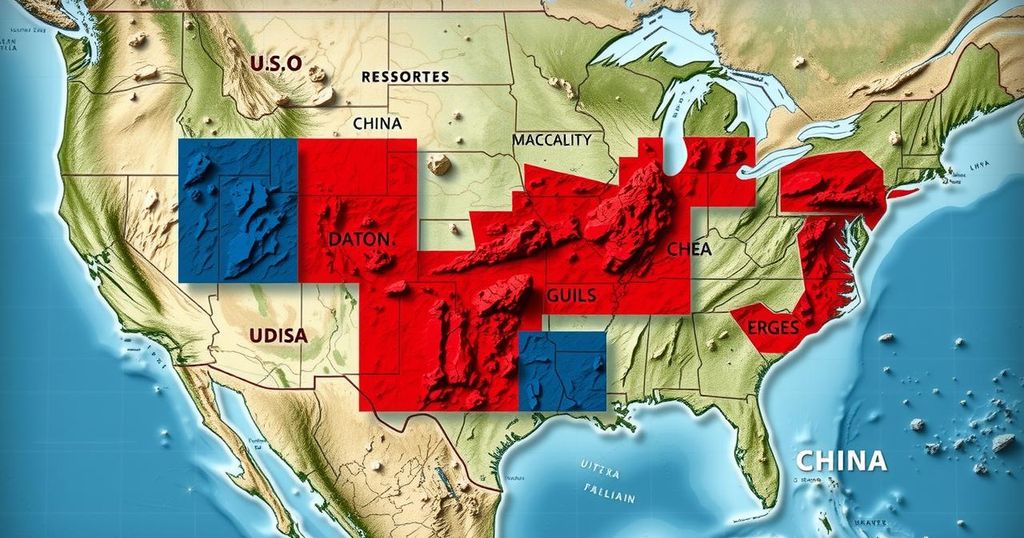Syrah Resources faces significant challenges in its effort to rival China’s dominance in the critical minerals market. Despite U.S. government backing, issues including market oversupply, community protests, and regulatory setbacks have led to substantial financial losses. Analysts highlight that China’s increasing control over essential minerals is difficult for U.S. competitors to overcome. Moving forward, the company’s future depends on policy support and successful partnerships with automakers.
The struggle for dominance in the critical minerals market has highlighted the challenges faced by U.S. companies competing with China. Syrah Resources, an Australian firm, aimed to disrupt China’s grip on graphite, essential for electric vehicles and other technologies, by launching a mine in Mozambique and a processing plant in Louisiana. Despite initial government backing, Syrah has encountered significant obstacles including market oversaturation, protests from local communities, and local regulatory challenges causing notable financial losses.
China commands over 90% of the global supply of battery-grade graphite and has amplified production, resulting in plummeting prices that adversely affect Syrah’s profitability. The U.S. government’s delayed regulatory measures to protect domestic suppliers did little to bolster Syrah’s position. Protests from resettled farmers at Syrah’s mining site in Mozambique have compounded their difficulties, compelling the company to halt operations and default on loan agreements with the U.S.
The broader implications of this competition show that U.S. policy inconsistencies hinder miners’ ability to compete effectively against Chinese enterprises. Firms like Jervois Global and BHP have struggled similarly, with many Western companies being unable to navigate the geopolitical complexities and operational risks in higher-risk countries where critical minerals are abundant.
Analysts indicate that China’s overproduction could be strategic, aimed at undercutting Western competition, although some speculate that it simply reflects their ability to operate profitably at lower prices. Research shows China’s control over lithium and nickel refining has increased significantly in recent years, raising concerns about reliance on Chinese supply chains.
Syrah’s aspirations hinged on U.S. government support to foster a domestic EV supply chain. However, delays in implementing penalties against the use of Chinese graphite and ongoing protests have hampered these efforts. Despite setbacks, Syrah’s CEO remains optimistic about future opportunities and anticipates eventual sales from their Louisiana facility, pending successful product qualification with automakers.
Future market dynamics remain uncertain as potential changes in U.S. policy could either aid or obstruct Syrah’s objectives. Stakeholders await further contract confirmations which will determine the firm’s trajectory in the competitive landscape shaped by both profit motives and strategic alliances.
The ongoing difficulties encountered by Syrah Resources illustrate the challenges that American companies face while vying against China’s established supremacy in the critical minerals market. The situation emphasizes the need for consistent U.S. policy support and collaboration among stakeholders to foster a more resilient domestic supply chain, especially as geopolitical dynamics evolve. The outcome of this competition will significantly influence the future landscape of the critical minerals industry, encompassing both economic and strategic considerations.
Original Source: www.hindustantimes.com




